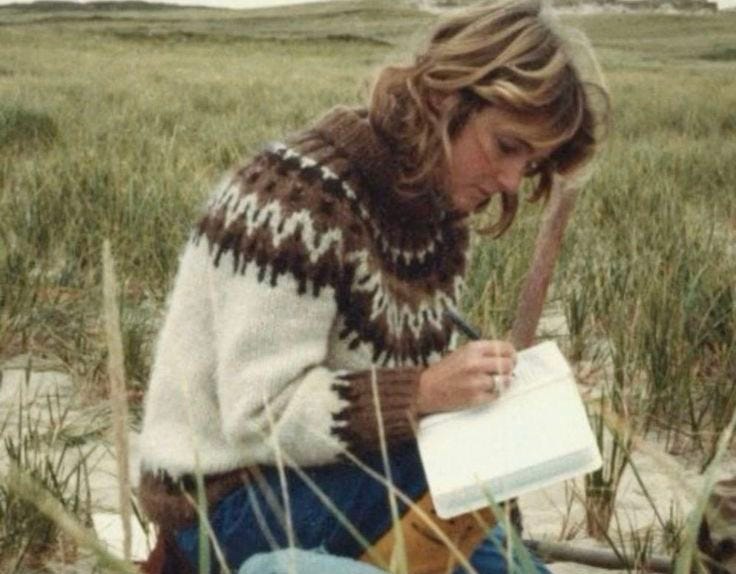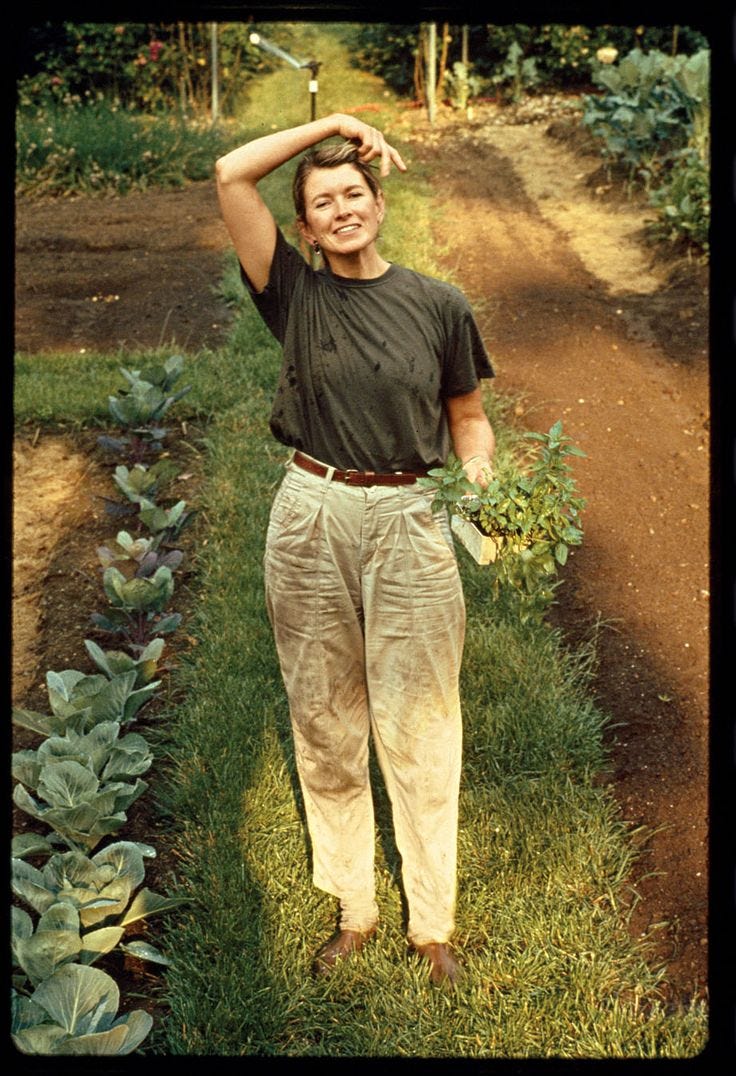I grew a lot over the course of Moth Fund I, both personally and professionally. Gaining confidence tends to have that effect. Confidence is what allowed me to see that all the proof points in front of me were pointing to the fact that not fitting the VC mold was exactly what was both winning me my best deals and convincing some LPs to take a chance on me. At the stage I invest, I’m selling my viewpoint to founders in the form of a small check, and I’ve found that the weirder that viewpoint is, the more interesting I am to the type of outlier people I want to back.
Learning to lean into my weirdness has taken many shapes. Mostly it’s looked like embracing what comes to me naturally: I’ve always been much more interested in understanding people than ideas, get immense gratification from building lasting relationships, and consider it a lifelong goal to improve my discernment and refine my taste. This often shows up in how I spend my time: I rarely take pitch meetings (if a founder is fundraising already I probably didn’t get there early enough), always have a creative project I’m actively working on, and spend a significant amount of time striving to understand and translate myself to the page. Cultivating a view of the world that no one else has is an edge I consider critically important to Moth’s success, as well as something that requires continual cultivation and critical refinement.
The type of people I aim to back are weird. Not just any weirdness though — I look for a specific kind of pragmatic strangeness found in outlier people who are striving to see reality clearly and make a lot of money. The pre-seed rounds I specialize in usually boil down to a founder and I choosing to partner with one another because we recognize that each of us brings something unique to the table. To materially benefit from this relationship, I must deeply understand the skills a successful founder needs to possess and invest a diversified portfolio of bets against this continually-refined mental model.
My view of the world is that people develop to different extents. While some become extremely spikey in a way that makes them an incredible founder, most do not. It’s my job to find, build a relationship with, and bet on those who do. In evaluating a person’s fit for venture, I’m aiming to understand the characteristics of their spike, how they source their motivation, their commercial aptitude, and whether they’re an outlier with a unique magnetism that draws other people to want to work with and help them. How this breaks down:
Spike: I want to understand what a person’s greatest strength is and how that functions doubly as their greatest weakness. When extensively developed, this strength should result in their having hard-won taste as the result of deep competence and expertise in an area.
Motivation: I look for two things here — obsession with the thing they’re working on, as well as evidence that they’ve had a difficult formative experience and emerged with hard-won proof of their own ability to persevere. I like tenacious underdogs who are determined to change something big.
Commercial instincts: Here I’m essentially asking whether they’re both capable and motivated to capture the value that they create. Simply put — a successful startup founder needs to be hyper focused on making a lot of money.
Uniqueness and magnetism: I need to see that the person in front of me is an amalgamation of characteristics that I’ve never seen together before but am personally compelled by. Do I want to work with/for them? Are they a magnet for top talent? Being an outlier with a clear track record of playing their own game generally results in a person possessing a unique gravitational pull.
I’ve learned that when a founder is difficult to pitch on paper, that might mean they’re a good fit for Moth. Investing at this stage and through this lens means that there’s a certain shape to a Moth-like deal — generally pure person bets (usually zero product) and quieter rounds raised quickly in order to buy time/resources/talent so the founder(s) can get back to building and set themselves on a clear track towards raising any kind of seed round they want. One of the main learnings from Fund I was that pre-seed is the best time for my small check to meaningfully contribute to the company’s success while getting enough ownership to continue to be worth something if the valuation skyrockets at later rounds. In practice this means that I avoid popular seed rounds and shamelessly follow my nose for talented people wherever it may lead me — hence the strategic necessity for me to be confident in my taste. I’ll be the first to admit I make mistakes though, which is why I take a 80/20 approach here: 80% of Fund II will be made up of the core pre-seed people bets Moth is becoming known for, while 20% is earmarked for betting on early stage wild cards (i.e. seed rounds I missed or founders who didn’t raise a pre-seed).
Moth Fund is designed around a singular focus on providing pre-seed founders with what they need — aiming to align the incentives for me to take a long-term approach with talented people and invest at the speed of the shared trust we build together. This results in a fund devoted to finding exceptional founders before they’ve been priced by the venture market and being one of the first to do so, using my check (either grant or investment) as a stamp of belief in them and their fit to become a multigenerational founder.
My confidence in this approach stems from my commitment to continually steering myself away from the straight and narrow path. I’m lucky that the path I’m on often intersects with other stubbornly independent and strange humans that I get to learn from and support on their journeys. Investors often ask each other what ideas they’re excited by and my honest answer is something like: I’m excited about specific friend groups, nascent talent diasporas, and a handful of emerging subcultures that are showing signs of following their own curiosity. Moth’s generalist portfolio reflects this focus and will continue to paint a picture of where I find the best talent building at any given time. I’ve accepted that my taste in founders will never be easy to sum up in a few words — betting on outlier people is an inherently moving target. Instead, Moth will always be best understood by looking through its portfolio (now 34 companies) to connect the dots yourself.





thank you for keeping it real
fun to be along for the journey - and learn from you